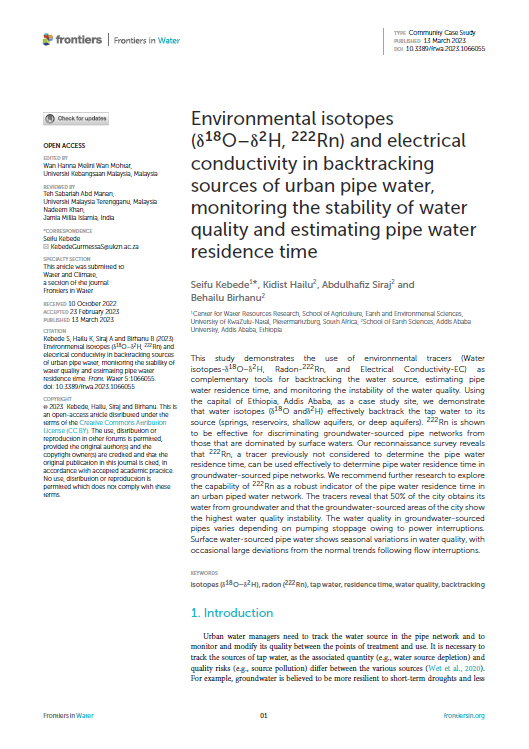Seifu Kebede, Kidist Hailu, Abdulhafiz Siraj and Behailu Birhanu
This study demonstrates the use of environmental tracers (Water isotopes-δ18O–δ2H, Radon-222Rn, and Electrical Conductivity-EC) as complementary tools for backtracking the water source, estimating pipe water residence time, and monitoring the instability of the water quality. Using the capital of Ethiopia, Addis Ababa, as a case study site, we demonstrate that water isotopes (δ18O and δ2H) effectively backtrack the tap water to its source (springs, reservoirs, shallow aquifers, or deep aquifers). 222Rn is shown to be effective for discriminating groundwater-sourced pipe networks from those that are dominated by surface waters. Our reconnaissance survey reveals that 222Rn, a tracer previously not considered to determine the pipe water residence time, can be used effectively to determine pipe water residence time in groundwater-sourced pipe networks. We recommend further research to explore the capability of 222Rn as a robust indicator of the pipe water residence time in an urban piped water network. The tracers reveal that 50% of the city obtains its water from groundwater and that the groundwater-sourced areas of the city show the highest water quality instability. The water quality in groundwater-sourced pipes varies depending on pumping stoppage owing to power interruptions. Surface water-sourced pipe water shows seasonal variations in water quality, with occasional large deviations from the normal trends following flow interruptions.

